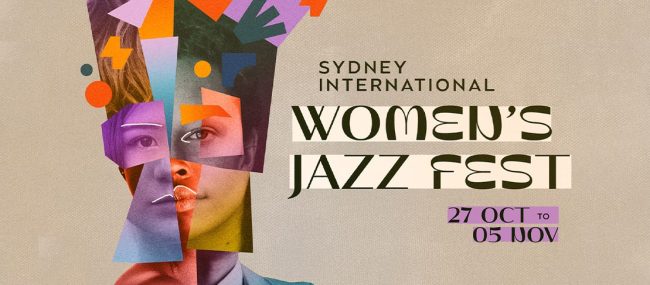BRAZOUKA to Sydney
The amazing story of how Braz Dos Santos and his brother struggled to dance internationally against all odds, is the basis for the moving, passionate and gritty dance-drama Brazouka. Sixteen dazzling dancers take audiences on a breath-taking journey of intense passion, sizzling sensuality, pulsing music and explosive energy.
This unique dance-drama is performed by the finest Brazilian dancers in the world, who introduce the sensational dance language of Lambazouk and other authentic Afro-Brazilian dances in a stunning variety of styles that will have you on your feet, captivated by the intoxicating rhythms. Gorgeous bodies, supreme athleticism, breathtaking energy, gripping spontaneity, stunning sensuality and an infectious sense of fun. These are the qualities that impress everyone who witnesses the cast of extraordinary dancers assembled for Brazouka!

The company is headed by Braz Dos Santos who, with his brother Didi, is known among zouk dancers as ‘the original’, ‘the best’, and ‘the real deal’. Now an international dancing star, Braz had humble beginnings in Porto Seguro in the state of Bahia in Brazil – the birthplace of Lambada. Partnered by the sensational Romina form Buenos Aires and Josy (also from Porto Seguro), he is widely acknowledged to be the very best freestyle lambazouk dancer in the world. It is his personal story of a ‘die or dance’ struggle to scramble onto the world’s stage from the toughest streets of Brazil that has inspired‘ Brazouka’.
What: BRAZOUKA, a mystical dance story from the streets of Brazil.
When: 13-16 November 2014
Where: Enmore Theatre
The story of Braz Dos Santos
Braz Dos Santos was born in a very modest area in Porto Seguro, in the Brazilian state of Bahia. His mother Maria had nine children, some of them born to Braz’s Afro-Brazilian father, and they all lived together in a tiny two-roomed house.
Braz’ father Valdimir made a meagre living sometimes working far away as a miner, and sometimes selling handmade wooden souvenirs to visitors on the beach. But he was also a shaman in the Candomblé religion. Braz has many memories of nighttime visits by ‘possessed’ people whose relatives sought help from Valmir to invoke the orishas (gods) by chanting, and an impromptu exorcism ceremony.
Braz would be shaken from his bed to play the drum, and there would be very little sleep for the family. Brazil is a potpourri of cultures. Braz’ mother is descended from a tribe of indigenous people in Bahia – the Pataxó ‘indien’ people. At 8 years old, she was asleep in her coastal home when government people came into her village and torched it. They were clearing the whole area for development. Maria and her family were forced to flee into the jungle.
Braz attended school for only a couple of years. When he was 15 he and his older brother Didi were sent to join the local fishing fleet to earn money for the family. He spent many terrifying days and nights on tiny boats in vast seas, and longed for the times when the weather would be so bad they couldn’t risk a trip. At such times, he and Didi would follow the older men ashore to the local bordello.
Barred from entering due to their young age, he and Didi would stand outside and peer through the cracks. This portside bordello was one of the main places where lambada started – a thrilling dance guaranteed to stir the limbs and quicken the blood.
For teenage boys, lambada was a very exciting prospect. The boys were desperate to learn to dance, and it didn’t take them long! Lambada grew in popularity. It began to be danced in the streets, the beaches, and the bars of Porto Seguro.
Once they become proficient lambada, Braz and Didi were in their element. They grew more and more excited by the dance and turned up at the Bocca da Barra beach bar to dance whenever they could escape the sea. The Catholic Church took steps to ban what became known as ‘The Forbidden Dance’, so Braz’ father Valdomiro disapproved of the boys’ interest in the dance, and actively prevented their sisters from dancing it. But when Braz and Didi began to win small lambada competitions, which meant money and food for the family, for a while their father turned a blind eye. Then the famous lambada song everyone knows was launched internationally. One evening, Braz and Didi were dancing in the Bocca – in flip-flops – when a man tapped each of them on the shoulder. “Would you like to come to Paris and dance lambada there?’ he asked. “Yes,” replied Braz, even though he had no idea where Paris was. But Didi was more guarded: “Do you mind if I finish my dance first?” he replied.
The boys went home and asked their father if they could go to Paris. “Absolutely not,” he replied. “Get back to the boats and earn some money.” This was a huge blow, because in Braz’ life he felt he must ‘dance or die’.
The extraordinary story of how Braz and his brother struggled to dance internationally against all odds, is the basis for this moving, passionate and gritty dance-drama. It is an inspirational story told through sensational Brazilian dance styles, and thrilling music, and the words of Braz himself.


